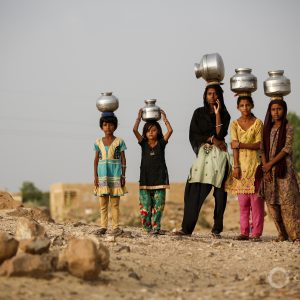The Stream, May 7: Water Restrictions Loom in Australia’s Capital Cities as Dam Levels Drop
The Global Rundown
Dam levels tumble toward 50 percent capacity in Australia‘s drought-stricken capital cities. Cyclone Fani leaves hundreds of thousands of people homeless after striking Odisha, India. Industrial waste poisons Manchar lake, Pakistan’s largest freshwater lake. Angola reemphasizes its Emergency Programme to Combat Drought as concern over dry conditions grows. Groundwater levels continue to fall across Afghanistan.
“Last year, we experienced severe drought in the country including in the Kabul River basin. The groundwater level dropped by more than 10 metres.” –Tayib Bromand, a member of Afghanistan’s ministry of water and energy, in reference to falling water levels in the country. Despite recent flash flooding, water access in many parts of Afghanistan is limited due to a combination of receding groundwater, damaged infrastructure, and less annual rain and snow. Al Jazeera
Latest WaterNews from Circle of Blue
HotSpots H2O: Floods, Sanctions, and Shortages Deluge Iran — The Trump administration announced last week that it will no longer provide sanction exemptions to countries importing oil from Iran, a move that could hurt Iran’s economy and impair its capacity to respond to devastating floods that rampaged through the county just weeks ago.
What’s Up With Water – Jakarta, Indonesia’s Sinking Capital — This week’s edition of What’s Up With Water includes coverage on flooding in Iran, low water levels in the Panama Canal, and plans by Washington D.C. to upgrade its flood-prone buildings.
By The Numbers
55 percent Current capacity of the 11 dams that serve Sydney, Australia. Reservoir levels in Australia’s other state capital cities, including Brisbane, Darwin, and Melbourne, are also below-average. Officials warn that dam levels could dip below half if dry conditions persist, triggering water restrictions. The Guardian
33 Death toll from Cyclone Fani, which hit the Indian state of Odisha on Friday. More than a million people evacuated ahead of the storm, which destroyed hundreds of thousands of homes. Water supply, transportation, and other vital services have been disrupted by the disaster. Reuters
Science, Studies, and Reports
João Lourenço, the president of Angola, said his government will reinforce the Emergency Programme to Combat Drought in southern parts of the country in order to stop the spread of severe drought. The country, where millions of people are already facing food insecurity, is entering a dry season until October. Relief Web
On the Radar
Pakistan’s Lake Manchar, which can expand to 250 square kilometers (96 square miles) during monsoon season, has been poisoned by industrial waste over the past few decades. The pollution is especially detrimental to fishermen who live full-time on Manchar. The water used to be drinkable and home to more than 40 varieties of fish, according to fishermen–but now, they can catch only small bait fish and must buy drinking water elsewhere. Al Jazeera
Kayla Ritter is a recent graduate of Michigan State University, where she studied International Relations and Teaching English to Speakers of Other Languages. She is currently based in Manton, Michigan. Kayla enjoys running, writing, and traveling. Contact Kayla Ritter








Leave a Reply
Want to join the discussion?Feel free to contribute!